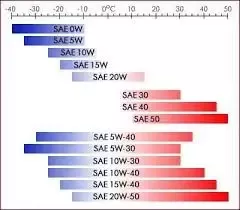As a vehicle owner, it’s essential to be aware of the warning signs of potential problems with your engine. One common issue that can arise is a bad crank bearing, and being able to recognize the telltale sounds associated with this problem can save you from costly repairs down the road. In this article, we’ll explore the sounds and symptoms that may indicate a bad crank bearing.
Recognizing Bad Crank Bearing Sounds
One of the most noticeable indications of a bad crank bearing is a knocking or thumping sound coming from the engine. This sound is often described as a consistent hammering that increases as the RPMs of the engine rise. If you hear this noise, especially under acceleration or while maintaining a constant speed, it’s crucial to address the issue promptly to prevent further damage to the engine.
Another sound that can point to a bad crank bearing is a high-pitched squealing or whining. This type of noise typically indicates a lack of lubrication or the onset of corrosion within the bearing. Additionally, grinding or scraping sounds suggest significant wear on the bearing, potentially due to debris contamination or overloading.
Additional Symptoms of Worn Engine Bearings
Aside from the audible cues, there are several other symptoms that may indicate worn engine bearings. These include excessive noise, low oil pressure, and difficulty shifting gears. Furthermore, changes in the clutch pedal feel, clutch engagement issues, burning smells, clutch slippage, and fluid leakage can all be signs of failing crankshaft thrust bearings.
How to Test for Bad Crank Bearings
If you suspect that your vehicle’s crank bearings may be failing, there are a few tests you can perform to confirm the issue. One method involves rotating the engine until it’s just starting on its downward stroke and then placing your fingers on top of the piston. By doing so, you can detect any abnormalities caused by bad bearings. However, it’s important to note that proper diagnosis and repair of crank bearings should be carried out by a qualified mechanic to ensure the safety and reliability of the vehicle.
Recognizing Different Types of Bearing Failure
It’s worth noting that the symptoms and sounds of bad crank bearings can vary depending on the specific type of bearing failure. For example, rod bearing failure may produce a distinct knocking sound, while main bearing failure can result in cyclic chirping, squealing, or growling noises. Understanding these distinctions can aid in the accurate diagnosis and timely resolution of the issue.
Credit: www.quora.com

Credit: m.youtube.com
Preventing Crank Bearing Issues
While recognizing the sounds and symptoms of bad crank bearings is crucial, taking proactive measures to prevent bearing failure is equally important. Regular maintenance, including routine oil changes and inspections, can help extend the lifespan of engine bearings. Additionally, avoiding excessive loads and ensuring proper lubrication are essential for preserving the integrity of the bearings.
Read More: How Do You Prevent Crankshaft Failure? Essential Tips
Frequently Asked Questions
What Does A Worn Crankshaft Bearing Sound Like?
A worn crankshaft bearing produces a knocking sound, similar to a hammering noise. It increases in intensity as the engine’s RPM increases. Other symptoms include low oil pressure, excessive noise, and difficulty shifting gears. A bad bearing may also cause grinding or scraping sounds due to significant wear.
How Do I Know If My Crank Bearings Are Bad?
To determine if your crank bearings are bad, listen for the following sounds: knocking noises from the engine, consistent hammering that increases with RPM, high-pitched squealing or whining, grinding or scraping sounds. These noises may indicate lack of lubrication, wear, or debris contamination.
It’s important to address these issues promptly to prevent further damage.
What Are The Symptoms Of A Bad Crankshaft Thrust Bearing?
A bad crankshaft thrust bearing can exhibit various symptoms, including unusual or grinding noise, difficulty shifting gears, changes in the clutch pedal feel, clutch engagement issues, burning smell, clutch slippage, and fluid leakage. These symptoms indicate potential issues with the clutch thrust bearing and should be addressed promptly to prevent further damage.
What Does A Bad Motor Bearing Sound Like?
A bad motor bearing sounds like a high-pitched squealing or a grinding/scraping noise. The former indicates a lack of lubrication or corrosion, while the latter suggests significant wear due to debris contamination or overloading. Knocking noises from the engine also indicate a bad crankshaft bearing.
Conclusion
In conclusion, being able to identify the sounds and symptoms of bad crank bearings is imperative for maintaining the health and performance of your vehicle’s engine. By staying attuned to the warning signs and taking proactive measures to address potential issues, you can safeguard your engine from extensive damage and costly repairs. If you suspect that your vehicle may be experiencing crank bearing problems, it’s advisable to consult with a qualified mechanic to diagnose and resolve the issue promptly.


